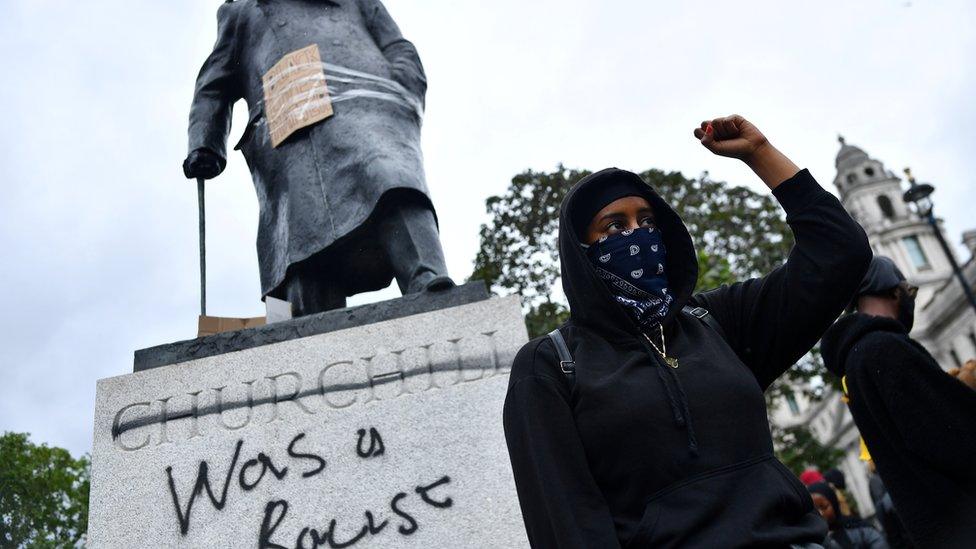Coronavirus: Thousands join Scottish anti-racism protests
- Published
Black Lives Matter protests in Scotland
Thousands of protesters have turned out to anti-racism demonstrations in Glasgow and Edinburgh.
Despite pleas from the first minister, police and MSPs to find safer ways to express their support, large numbers gathered on Glasgow Green and Holyrood Park.
However, most were wearing face coverings and all attendees were asked to observe social distancing.
Marches and rallies were planned following the death of George Floyd.
The 46-year-old black man died in Minneapolis, Minnesota after a white police officer knelt on his neck for almost nine minutes.
His death has sparked days of demonstrations and unrest in the US and around the world.
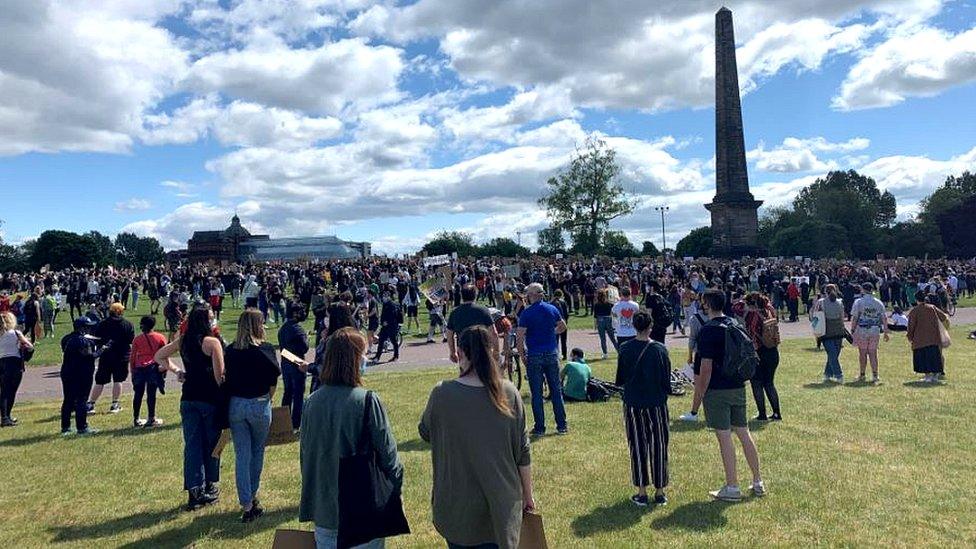
Thousands gathered on Glasgow Green to hear speakers and show their support
Events were planned in Scotland despite ongoing lockdown restrictions and a ban on mass gatherings.
The first minister said that in different circumstances she might have joined the demonstrations but that the coronavirus outbreak meant it was "simply not safe" and would "pose a risk to life".
There were no new reported deaths among people who have tested positive for coronavirus in Scotland on Sunday, although the figures at a weekend are often low because of delayed reporting.
Despite the progress made in containing the virus, mass gatherings remain banned under the lockdown.
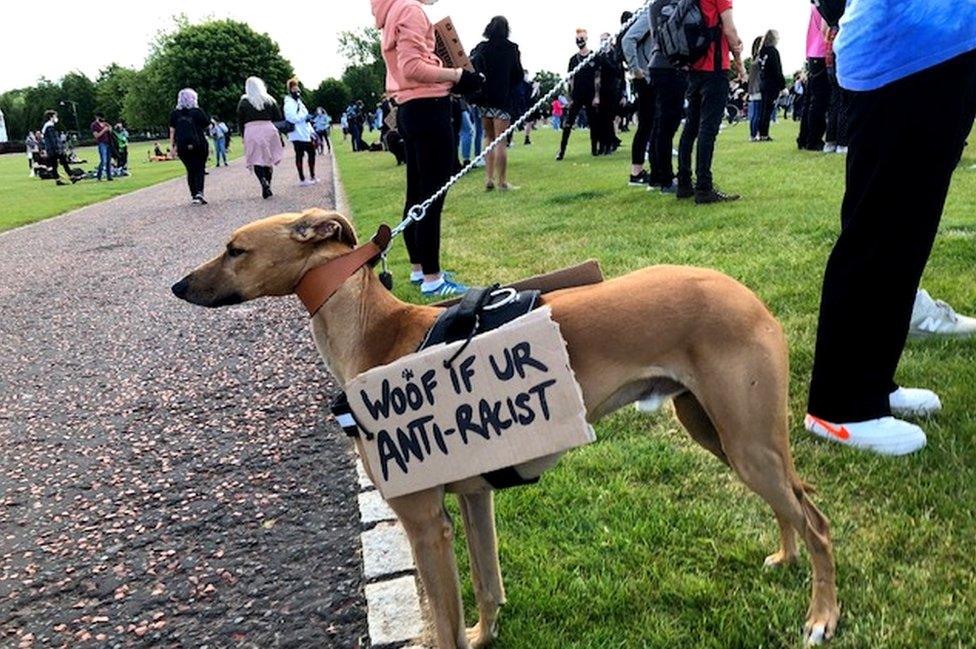
People appeared to try to stay in household groups and observe social distancing in Edinburgh
Justice Secretary Humza Yousaf said during the Scottish government's daily briefing that the large numbers taking part were worrying and that he had spoken to Chief Constable Iain Livingston a short time before.
He said: "He tells me that good social distancing has been put in place. But even with that in place, even with people wearing face coverings, mass outdoor gatherings like this could present risk to public health.
"And we do know there is a lot of evidence of the disproportionate impact that Covid-19 can have on the minority ethnic community.
"So the very people whose lives we say matter are the very lives that those people could be putting at risk. So yes, it does give me a great deal of concern."
The Black Lives Matter protest started at Glasgow Green at midday after it was moved from George Square to allow easier physical distancing.
An hour later, supporters started arriving at Edinburgh's Holyrood Park where organisers asked those attending to wear PPE and to observe social distancing.
Allow X content?
This article contains content provided by X. We ask for your permission before anything is loaded, as they may be using cookies and other technologies. You may want to read X’s cookie policy, external and privacy policy, external before accepting. To view this content choose ‘accept and continue’.

A socially-distanced poster protest has been taking place across Aberdeen throughout the day. Protesters booked limited "slots" to display signs, posters, artwork, notes and poems demanding justice for the victims of police brutality.
People in Inverness tied messages and artwork to Ness Bridge in the city centre in support of Black Lives Matter.
A protest had been planned, but organisers cancelled it because of concerns social distancing could not be safely maintained due to the numbers of people intending to take part.
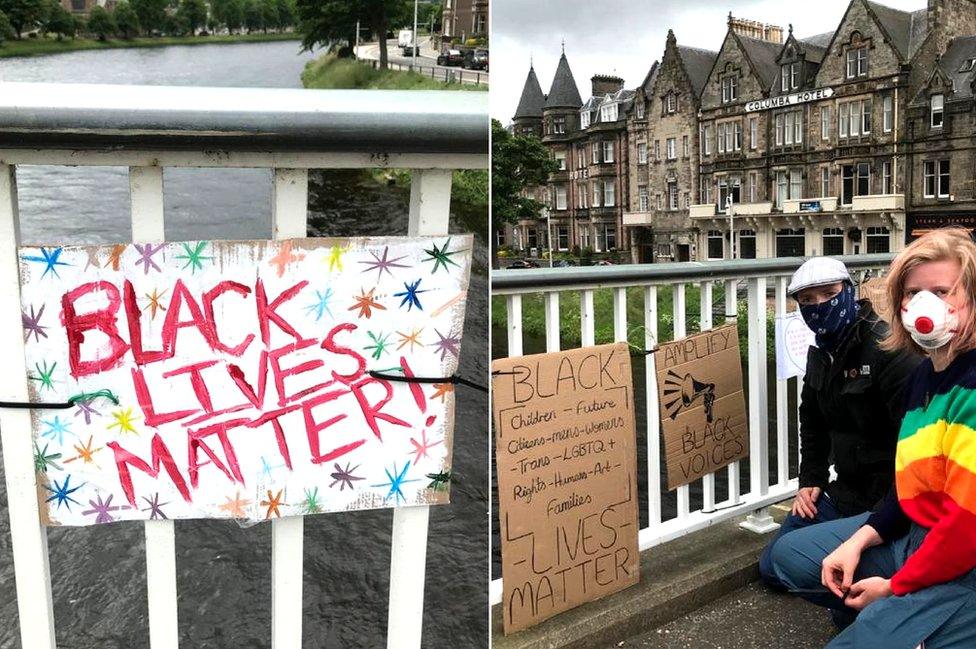
People in the Highlands have been leaving messages of support on Ness Bridge in Inverness
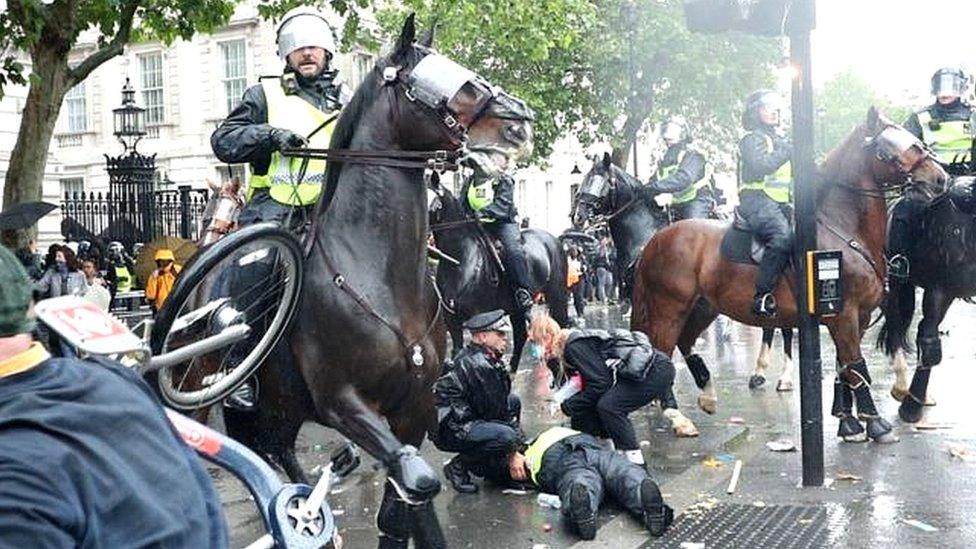
Fourteen police officers were injured during protests in London on Saturday
Protests went ahead south of the border on Saturday despite officials advising against mass gatherings due to the pandemic.
On Saturday, 14 Met Police officers were hurt during anti-racism protests in London.
Thousands of people gathered in cities including London, Manchester, Cardiff, Leicester, and Sheffield which were largely peaceful. However, there were disturbances near Downing Street later in the day.

More on George Floyd's death
VIEWPOINT: Tipping point for racially divided nation
TIMELINE: Recent black deaths at hands of police
BACKGROUND: Five pieces of context to understand the protests
CRIME AND JUSTICE: How are African Americans treated?

The first minister urged people to join digital protests, including one organised by the STUC on Sunday evening.
The event will host speakers including Kadijartu Johnson - a nurse and the sister of Sheku Bayoh, who died after being restrained by police in Kirkcaldy in 2015. A public inquiry is due to be held into the circumstances of his death
Ms Johnson agreed to speak at the virtual anti-racism protest which falls on the fifth anniversary of Mr Bayoh's burial, after making a joint statement discouraging the physical demonstrations.
Alongside Mr Yousaf and other politicians and anti-racism campaigners, she urged people not to attend the rallies, and to find alternative and safe ways of protesting.
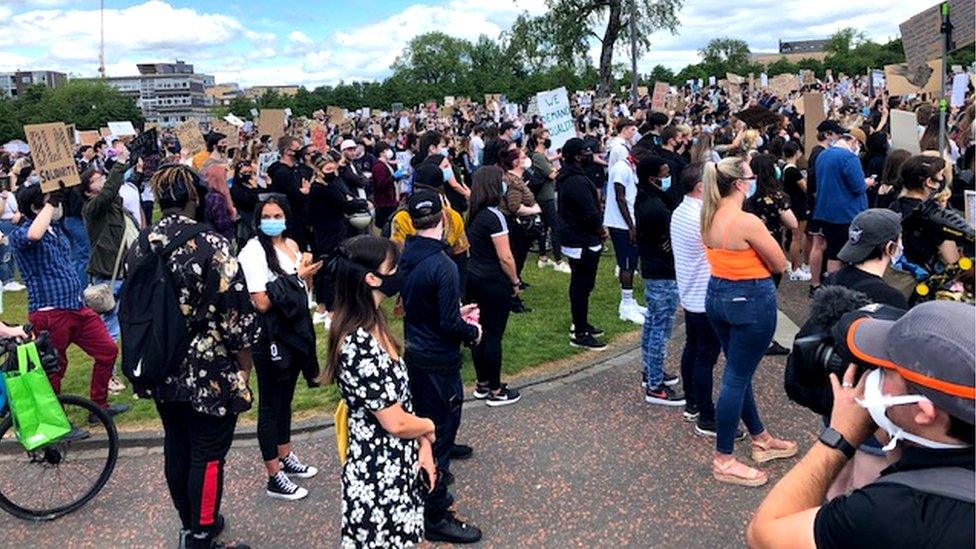
Most people at the Glasgow Green event were wearing face coverings
The joint statement warned that progress on easing lockdown in Scotland is "fragile" and said: "Like so many we want to stand in unity with millions across our planet to show solidarity with those protesting against racial injustice in the USA but also to support those challenging racial injustice and discrimination in Scotland.
"The rules in place are there to protect people's health and ultimately people's lives.
"Therefore, as long-term anti-racist campaigners we are still urging people to protest but to use the many other methods available at this time, including digital protests."
- Published7 June 2020

- Published6 June 2020
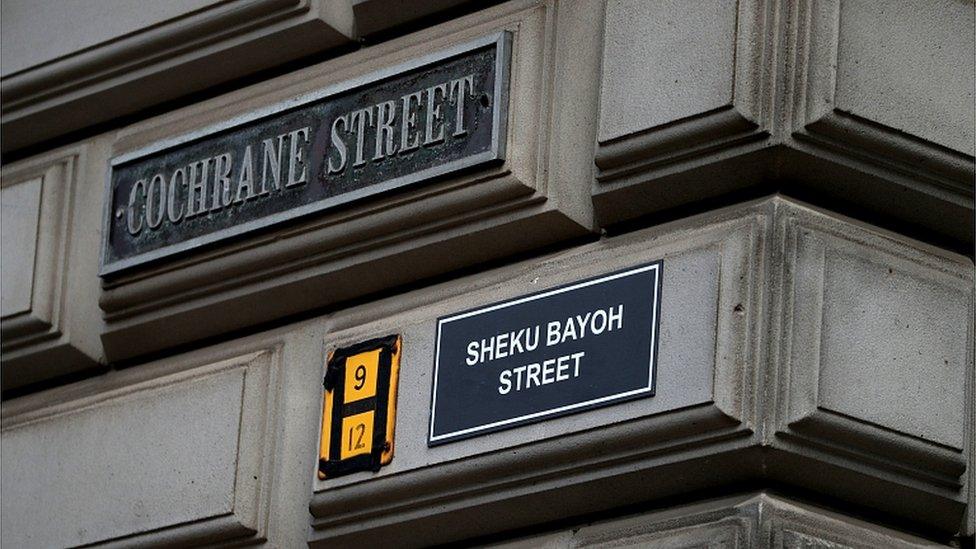
- Published3 June 2020
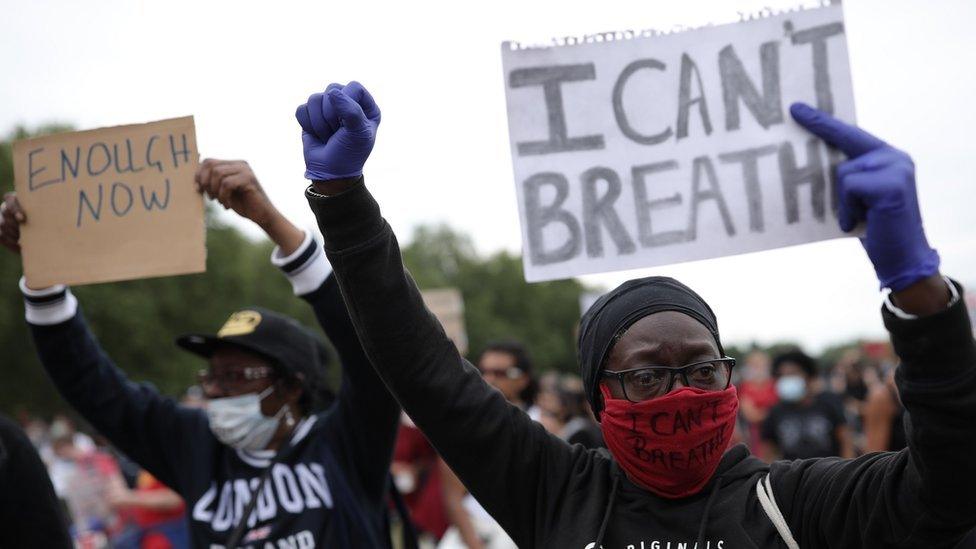
- Published8 June 2020
